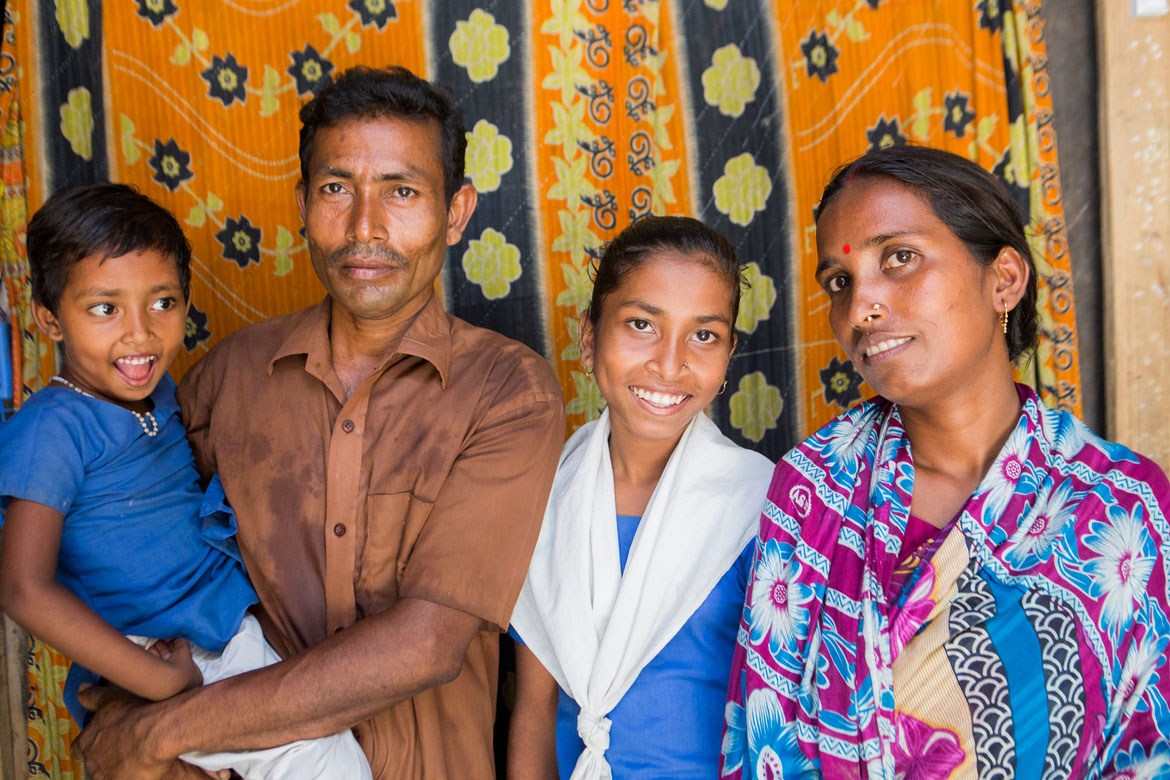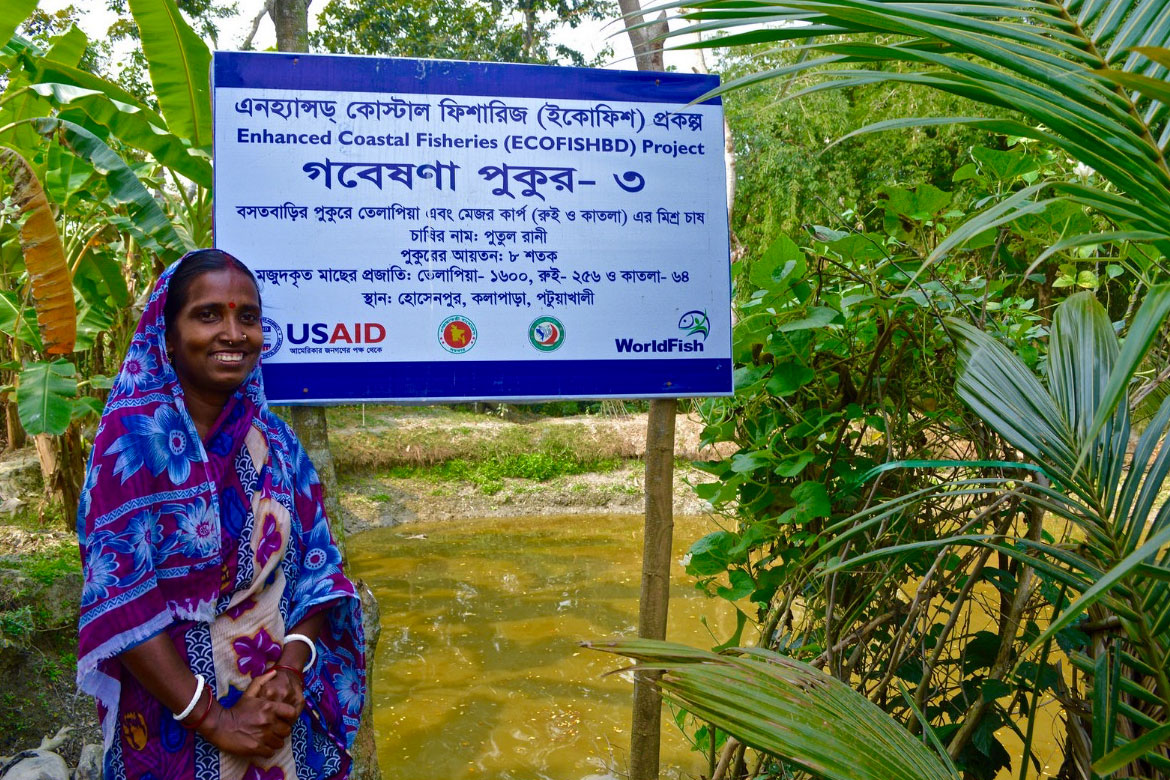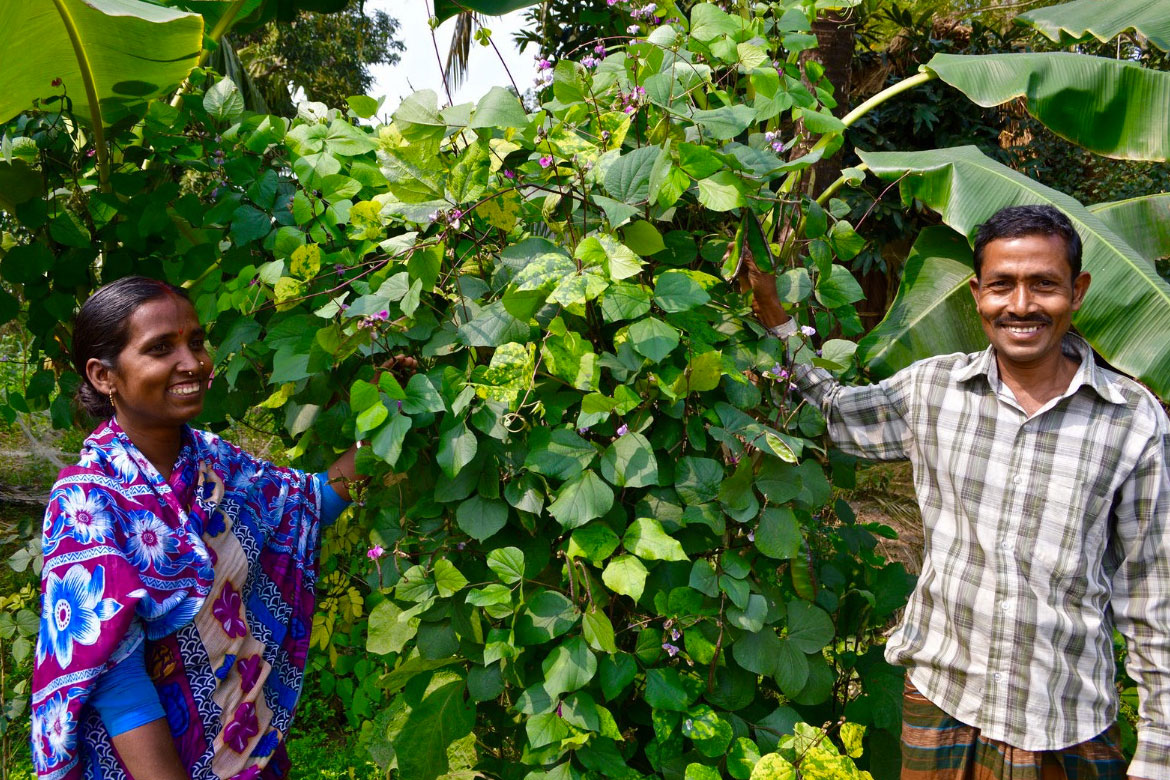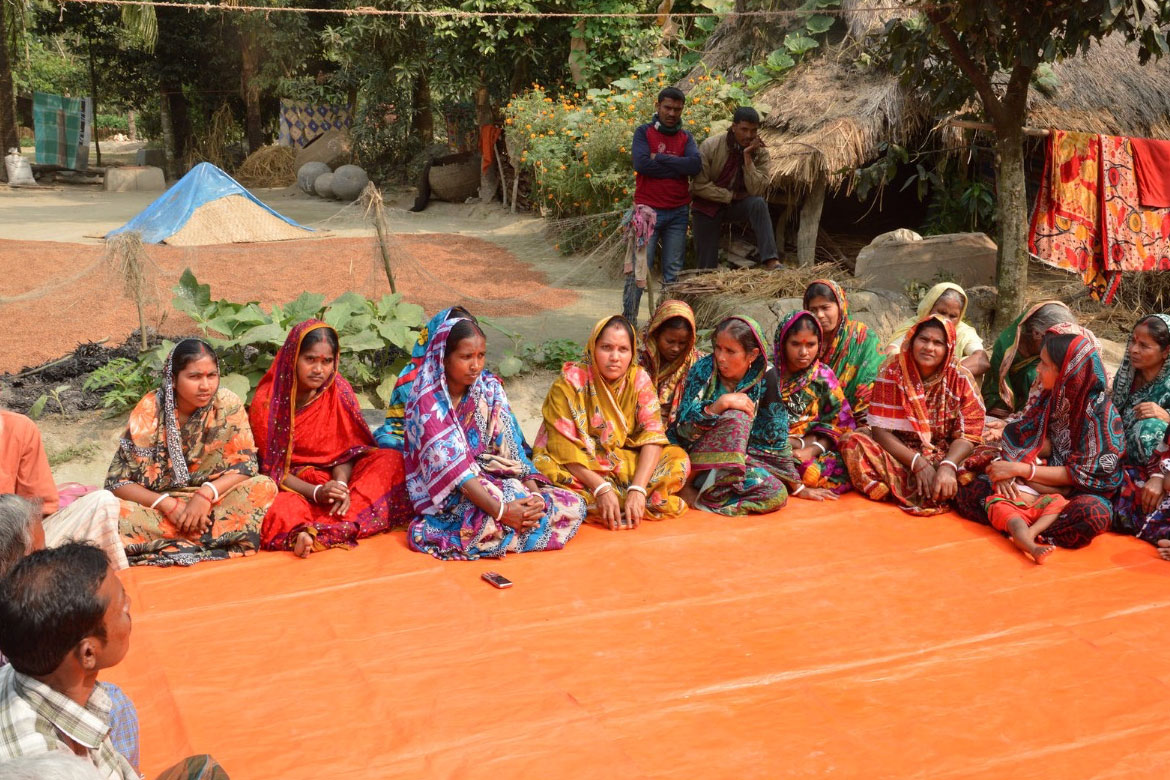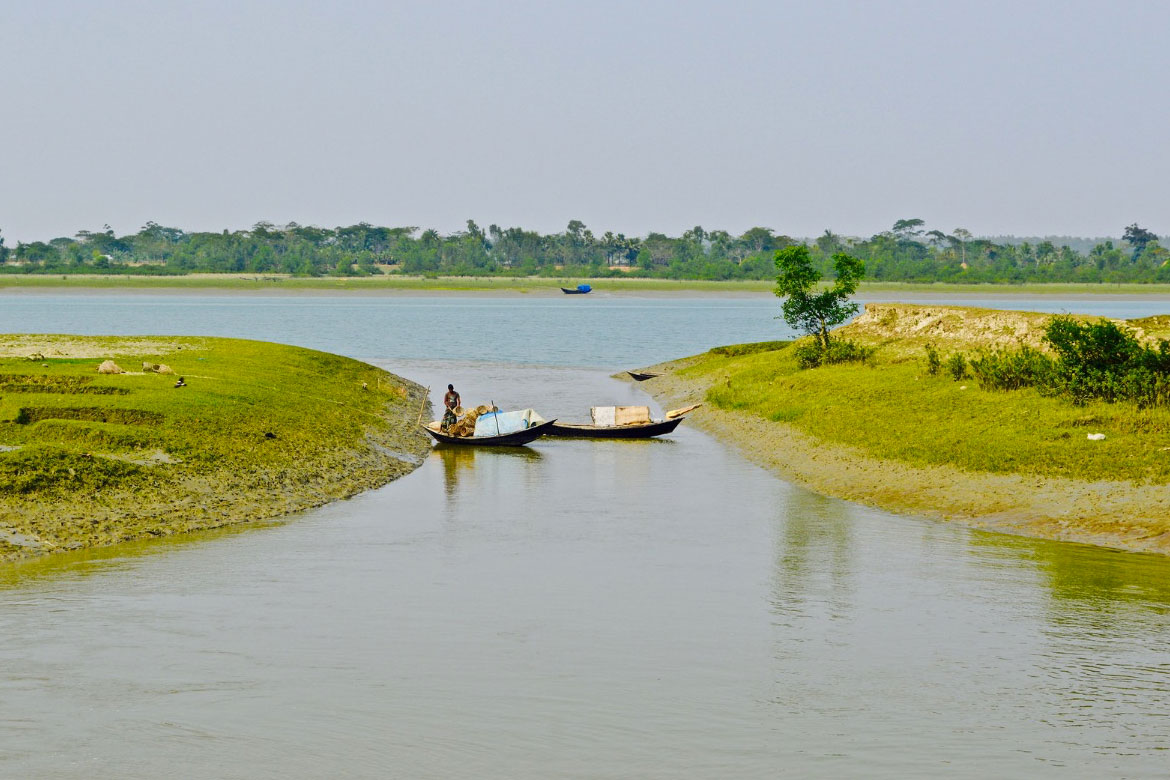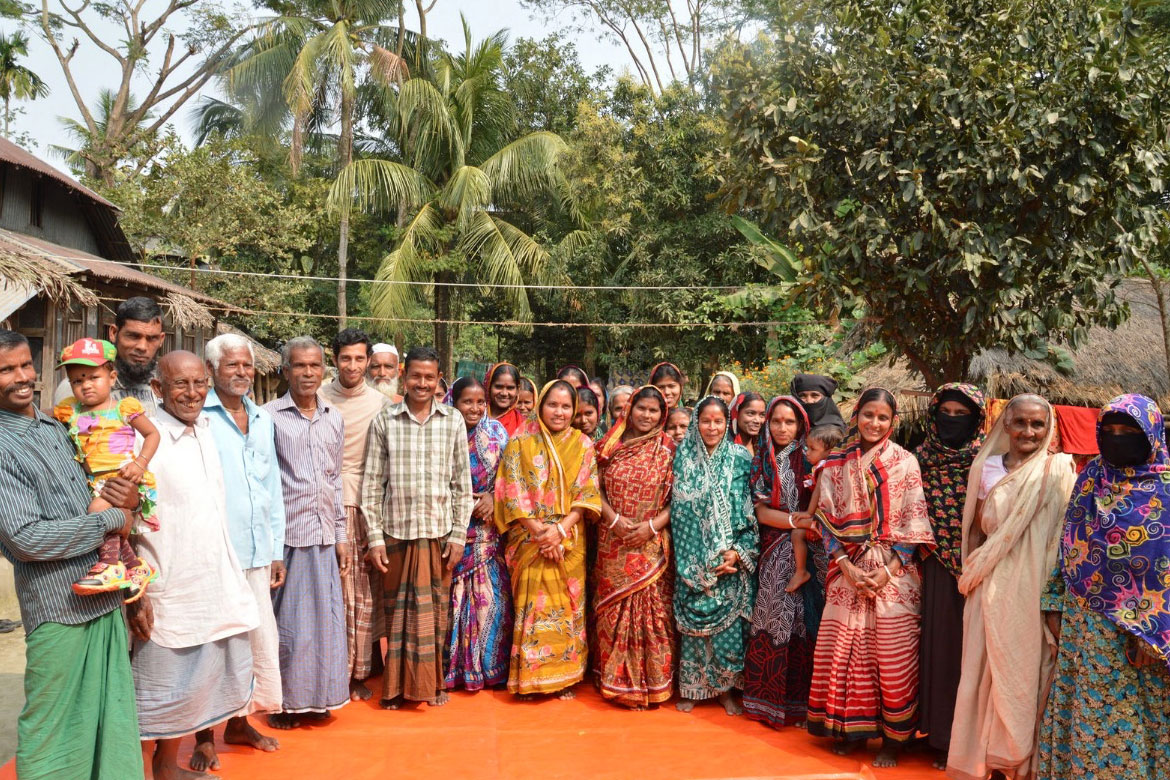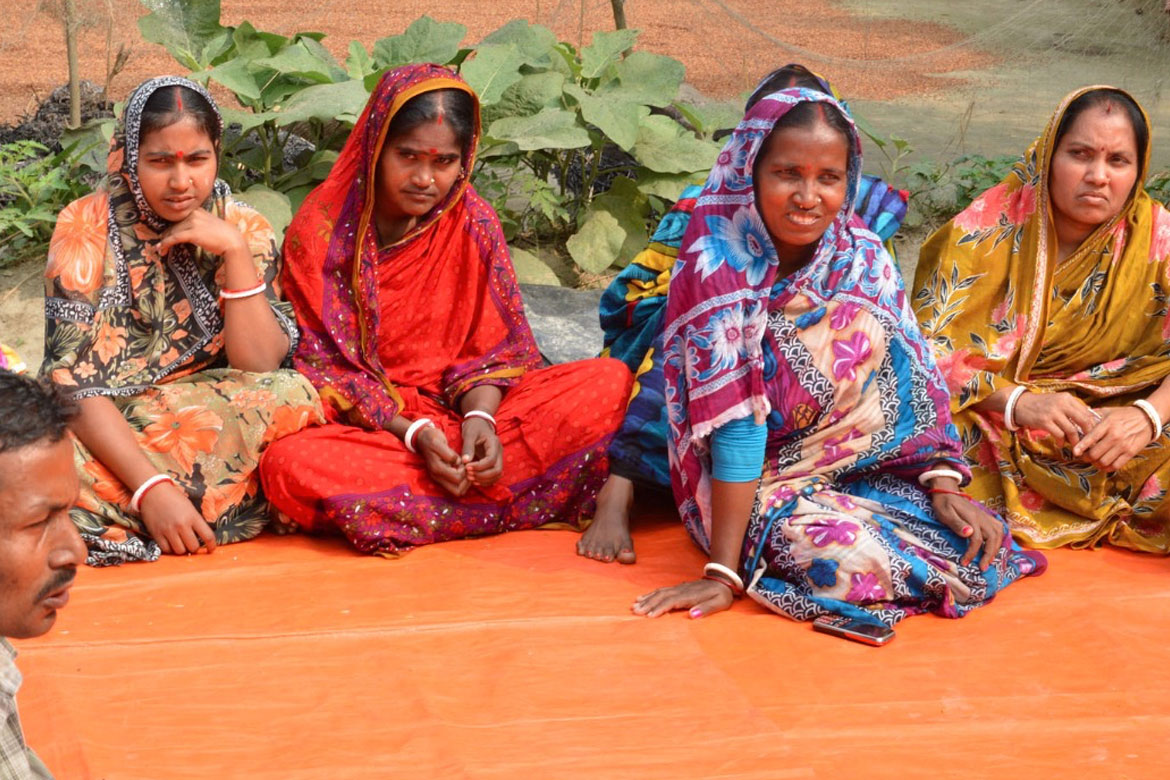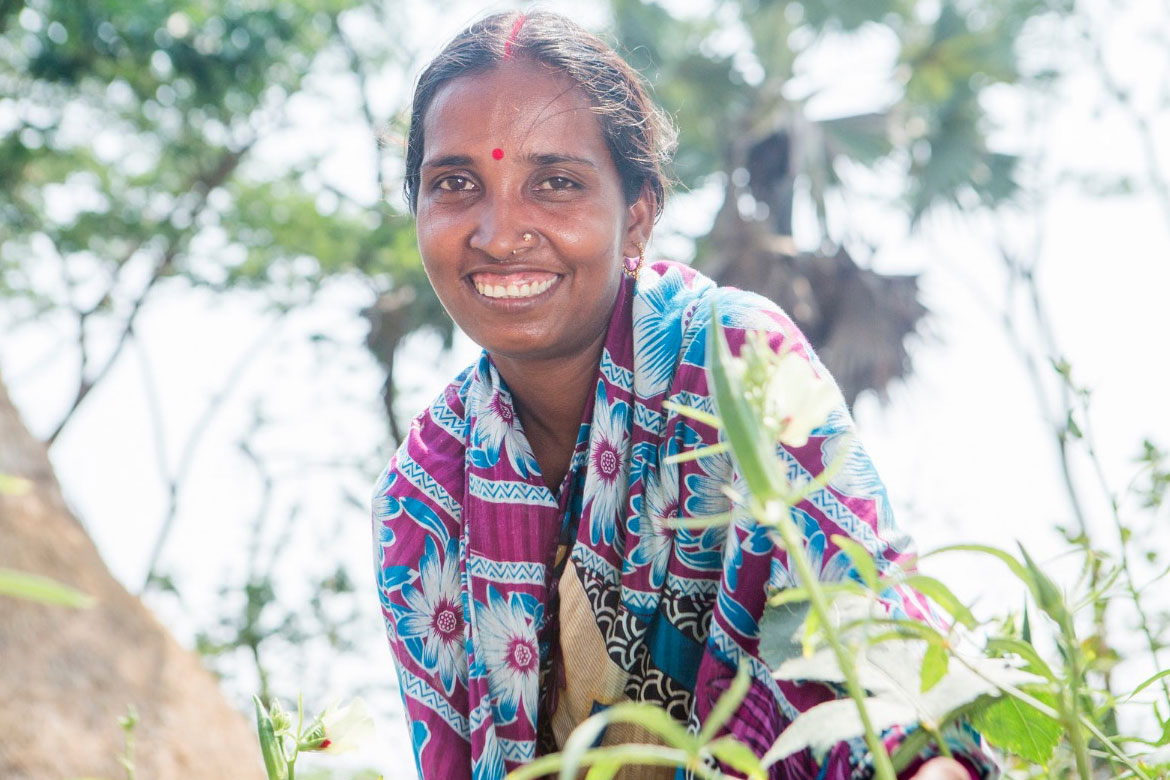-
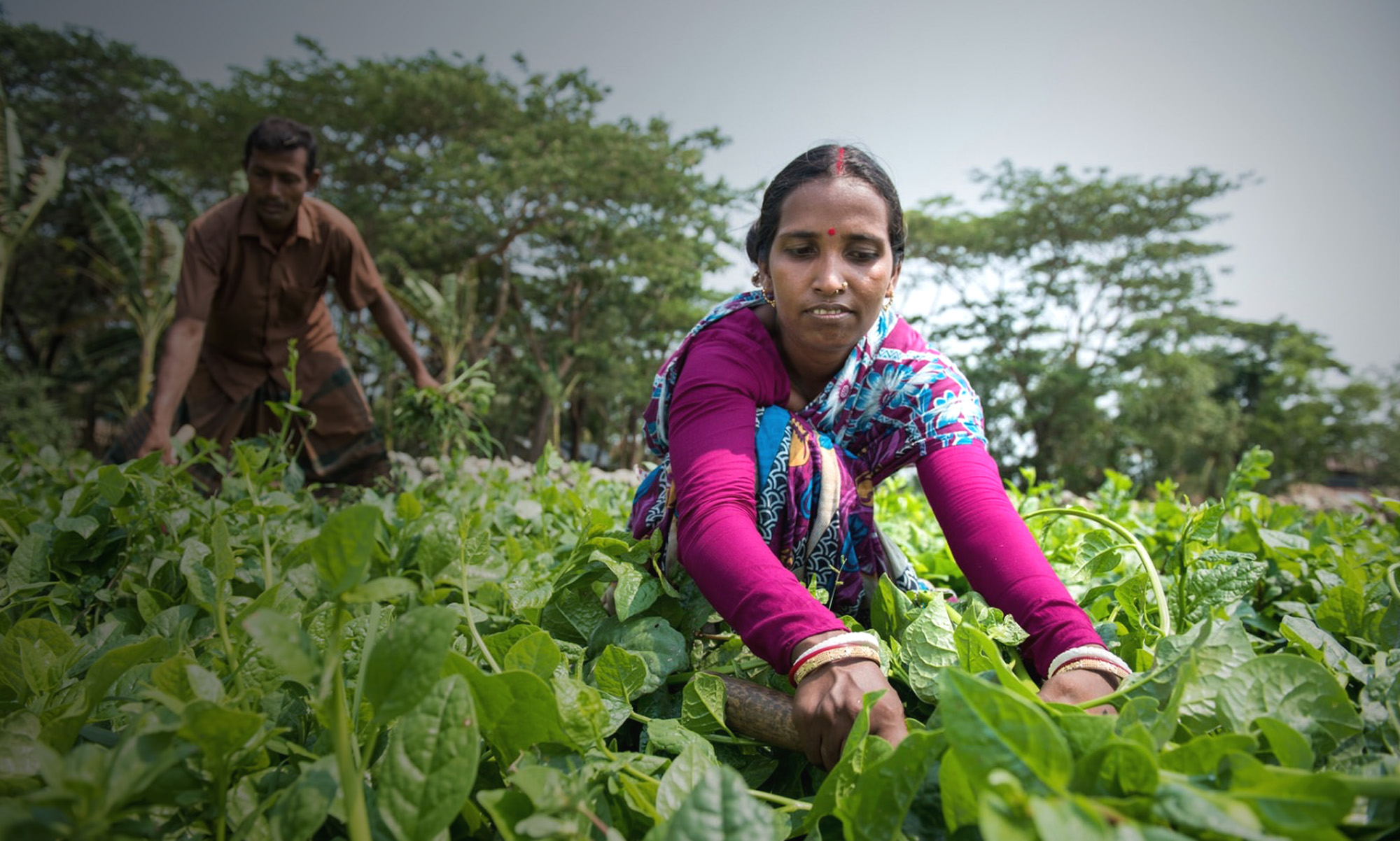
Putul Rani inspires
community to conserve
hilsa in Bangladesh
“I was struggling to find a way to increase my family income, particularly during the ban period,” explains fisher’s wife Putul Rani, from a remote village in Kalapara, Patuakhali in southern Bangladesh.
Every year during the hilsa breeding months, normally September and October, it is illegal to catch juvenile or mother hilsa. The ban on hilsa, Bangladesh’s national fish, was introduced in 2011 by the government to protect fragile hilsa stocks. But for fishing-dependent households like Putul Rani’s, the ban means they must find another source of income or depend on what little savings they have to cover basic household costs.
As part of the USAID-funded Enhanced Coastal Fisheries (ECOFishBD) project, poor and rural fishing households like Putul Rani’s receive support and training to farm fish in homestead ponds and grow vegetables for home consumption.
Alternate income generating activities: A sustainable livelihood option
Soon after attending training on aquaculture and horticulture practices, Putul decided to put her new skills and knowledge into action. She started farming tilapia and carp in her homestead pond. On the land surrounding her family home she planted the vegetable seeds she’d received from the project, such as sweet potato, bean, radish, and bitter gourd. Within a few months, she had successfully grown and harvested her first crop of vegetables.
After eating most of the produce at home, her family was able to sell any surplus vegetables and fish for an income. Inspired by earning extra money and contributing to the family’s income, Putul plans to continue these activities in the future. “Fish and vegetable farming brings happiness to my life. I have a dream to transform our lives from poverty to income generation. The best time of my life is farming fish and vegetables simultaneously as it has brought a change to my life,” she says.
Community savings groups lead to women’s economic empowerment
“Before participating in the project we had financial problems, so there was always tension between us in the household,” explains Putul Rani. “But now everything has changed.” Access to credit is often a problem for poor and rural households, who cannot afford to pay the high interest rates of local moneylenders. To overcome this, the project has established community savings groups each consisting of around 30 women from fishing households.
Group members come together weekly, where they each contribute BDT 25 (USD 0.31) in savings. The money is deposited by the group secretary into a local bank account, which members can then borrow at the government-set interest rate of 6.7%. “I will start commercial vegetable farming by utilizing my deposited money of savings and I have a future dream that I can improve our well-being and contribute to the income and food security of my family,” said Putul Rani. It is hoped that this savings activity will enhance the access of women and other marginalized social groups to resources, assets, knowledge, skills, networks, markets and services.
See how Putul Rani’s story is part of ECOFishBD’s wider efforts to protect and conserve hilsa.
Putul inspires her village to conserve and protect hilsa
Before her involvement with the project, Putul’s husband used to fish for juvenile hilsa during the ban. “We knew this is illegal, but we caught the fish without seeing the coastguards,” she explains. Now, Putul is General Secretary of a 30-person hilsa conservation group (HCG) in her area. The project encourages fishing communities to form groups, which meet weekly to discuss best fishing practices in the face of a shrinking hilsa fishery.
Putul has become a passionate advocate for conserving hilsa.“If more fish survive we can save millions of hilsa for the next generation,” she says. Putul has successfully convinced her husband not to catch juvenile hilsa during the ban period and he now helps her to farm fish and grow vegetables. She also shares her new skills and knowledge with neighbors by teaching them how to do these activities.
The members of the conservation groups work hard to motivate others to follow proper fishing practices and find alternative ways to generate income so that they can survive during the ban period without fishing hilsa. Since the project started in 2015, Putul has already noticed some promising changes. “Before, we spent all of our days in the river but we couldn’t find a fish. Now, we catch four to five fish daily and earn 2000 to 3000 taka [USD 25-38],” she says happily.
With these new opportunities to earn an income and access credit, it is expected that fishers and their families will respond proactively to livelihood challenges and that Bangladesh’s national fish will be protected for future generations to enjoy.
About ECOFISHBD
The USAID Bangladesh-funded Enhanced Coastal Fisheries in Bangladesh (ECOFISHBD) project, implemented jointly by WorldFish and the Department of Fisheries, aims to restore and maintain a healthy hilsa population and improve the livelihoods of vulnerable communities. ECOFISHBD promotes women’s positive role in natural resource management, and in reducing gender-discriminatory norms and practices that negatively affect communities. Of the 100,000 fishers’ family members who will benefit directly from the project, around 50% are women. The project will target 30% female participation in the 500 hilsa conservation groups it aims to establish in the next three years. Livelihood support is also provided to female beneficiaries and fisher women’s community savings groups have already been established.
Project
Enhanced Coastal Fisheries in Bangladesh (ECOFISH-BD)Donor:
United States Agency for International Development (USAID)Related sustainable development goals




Tags
Bangladesh, coastal, conservation, ecosystems, co-management, resilienceImpacts
hilsa conservation groups formed in 40 villages since 2015
500
hilsa conservation groups to be formed by 2019
61
savings groups formed since 2015
20,000
estimated households involved in conserving hilsa by 2019
Photo credits: Mohammad Mahabubur Rahman/WorldFish and Foto Agencies/WorldFish.


